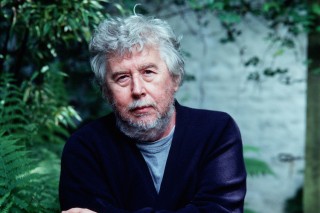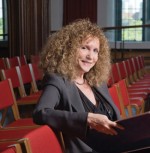Title

Harrison Birtwhistle
(Photo by Hanya Chlala/Arena PAL)The four pieces the New Juilliard Ensemble will play at its first concert of the school year, on September 20 in the Sharp Theater, came to the program by very different but very personal routes.
Body
I met German composer Bernd Franke in 1996 when he took charge of N.J.E.’s concert at the Leipzig Conservatory to celebrate its new concert hall. Our visit went by so quickly that only one detail sticks in my mind—the surprisingly noisy air conditioning system in the brand-new hall, a major fault that seemed inconsistent with a country renowned for its attention to detail. Nor was it a trivial matter: the program included a piece by Morton Feldman that would have vanished into the hissing ducts. Fortunately, moderate spring temperatures permitted turning off the system completely and Feldman triumphed. Extremely helpful and gracious, Franke seemed like he might be a fine composer—which, indeed, he is—but for a long time he wrote only for small ensembles, especially his own improvising ensemble, Solo Xfach.
As it happened, in 2013 I decided to revisit Leipzig and see old friends there. Over an excellent cup of coffee, Franke mentioned that he was composing a piece for a Spanish ensemble with the same standard “sinfonietta” scoring as N.J.E.—four woodwinds, three or four brass, one or two percussionists, piano and/or other keyboards, often harp, and only five strings. At my request, he sent it as soon as it was done. Called Veil (I), it is a colorful, compact, mini-symphony. I immediately decided to reserve its first performance after the Madrid premiere and the repeat performance in Frankfurt. The piece draws upon Franke’s long experience in running his improvising ensemble, moving between fully composed sections and areas in controlled improvisation that should provide our players with real challenges. (The piece is extremely colorful and dramatic; Franke always declines to say much about his music, convinced that music must speak for itself.)
One of great wonders of new music is also one of its problems: the huge number of composers, many of whom are extraordinarily good. One naturally winnows down the list by crossing off those who haven’t written for an instrumentation suitable to a project. That, however, can lead one to forget that the composer might write something suitable in the future. (Clearly such behavior is not limited to finding new music.) This was the case with Shulamit Ran, an Israeli-born composer who teaches at the University of Chicago. I have admired her for decades but, never having found something with the right scoring, eventually stopped checking her catalog. In May, however, when I mentioned to Dean Ara Guzelimian that her particularly beautiful solo viola had been played in my practicum and he lamented the fact that such a fine composer is not played more often, I realized that I must bring myself up to date. To my great delight I saw a sinfonietta piece, Fault Line (2005-06). (My discovery was not much of a discovery: It has already been played in New York.) It fit into this program perfectly, and we’ll present it with third-year soprano Onadek Winan singing the optional soprano solo.
Another piece also came to be by chance. In May, while I was in London, I attended the final concert of a monthlong celebration of the 80th birthday of Harrison Birtwistle, one of the leaders of the late-20th-century British new-music world. The opening piece, Cantus Iambeus (2004-05), a compact, dynamic, and challenging exploration of melodic layers moving in different tempos, was just the sort of piece that N.J.E. players would relish. It will be a special pleasure because it has never been played in New York—and it will be another salute to the composer’s 80th birthday. The Latin title translates “iambic song”—a song using rhythms in short-long values (like the word “rhythm”), but what it actually represents is hidden under the surface. Indeed, like me, the program writers for the world premiere and for the May concert seemed at a loss to say much about the significance of the title and clearly got no help from Birtwistle.
The program will close with the world premiere of Italian composer Alessandro Annunziata’s Ritrovare. About two years ago, the Italian publisher Rai Trade sent me Annunziata’s energetic and engaging string quartet Griko, which is based on a unique, very ancient Italian folk culture with a distinctive Greco-Italian history. Although I had never heard of Annunziata, I was so impressed by his quartet’s energy and variety that I immediately programmed it for N.J.E. members to play at our MoMA Summergarden 2013 concert series, where it was a huge success. Annunziata attended the concert and, excited by the quality of the N.J.E. players, immediately offered to write a sinfonietta piece as a present—an offer which did not cause me an instant of hesitation. That piece is Ritrovare (“to find again”). Annunziata, a writer as well as a composer, does not worry about describing his music. He told me, “I conceived this work like a musical ‘trip,’ looking for a new, strong, significance of contemporary musical expression. It’s like Odysseus who returns to Ithaca, passing through many different lands, after some ‘crisis’ that leads him to find once more his ancient roots. This piece, like my string quartet, shows my love for and interest in Mediterranean popular music, but it happens only at the end of the journey, with the final, enthusiastic dance in a Greek mode.” I am sure that Ritrovare will send the audience out in high spirits.







